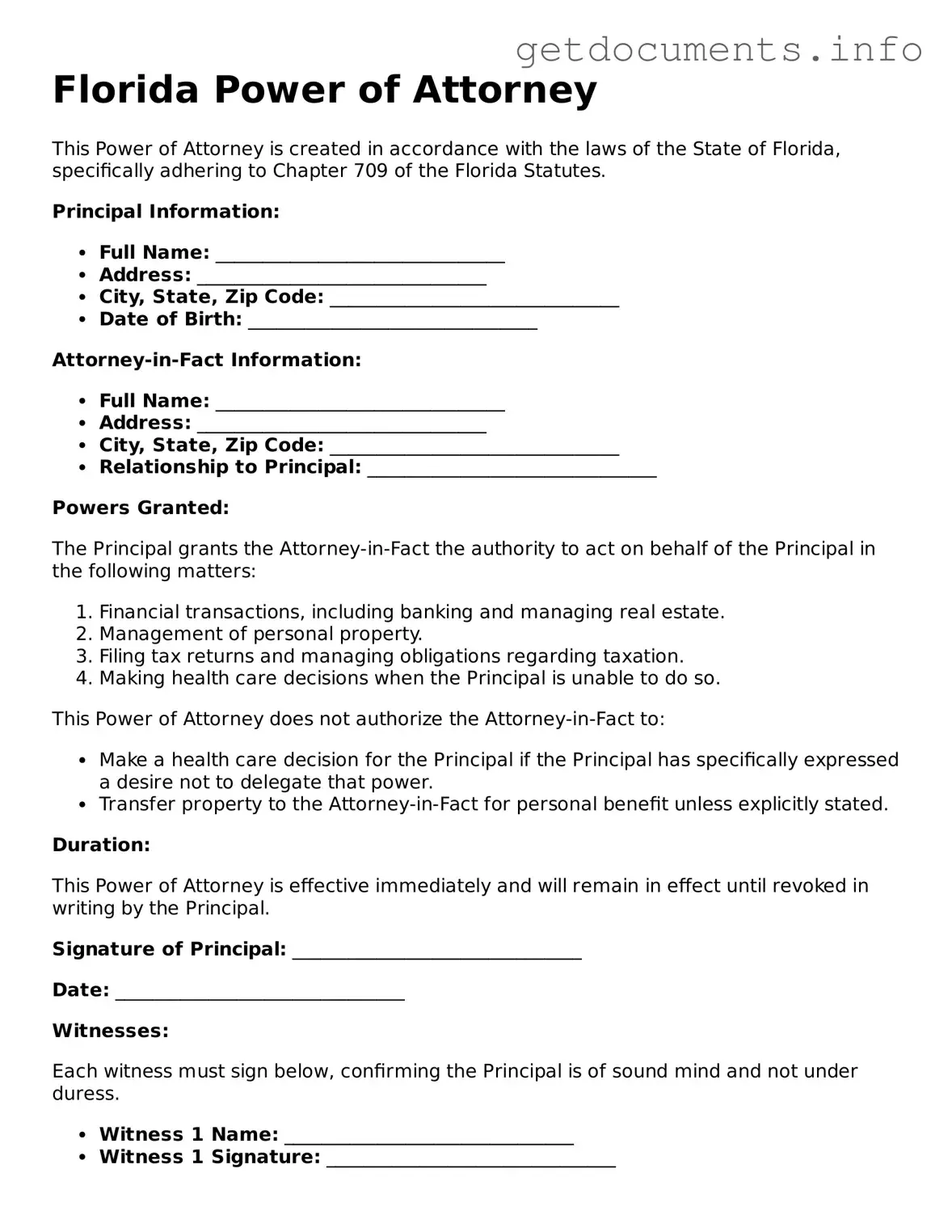Free Power of Attorney Template for Florida
A Florida Power of Attorney form is a legal document that allows you to designate someone to make decisions on your behalf, whether for financial matters, healthcare, or other important issues. This form can be a crucial tool for ensuring your wishes are respected, especially if you become unable to communicate them yourself. Ready to take control of your future? Fill out the form by clicking the button below.
Access Power of Attorney Editor

Free Power of Attorney Template for Florida
Access Power of Attorney Editor
Got places to be? Complete the form fast
Fill out Power of Attorney online and avoid printing or scanning.
Access Power of Attorney Editor
or
⇩ PDF File
